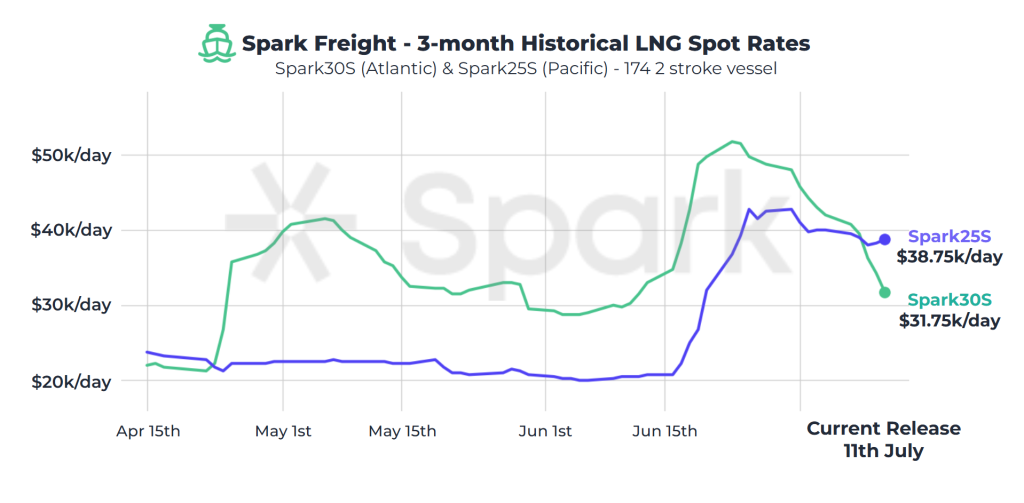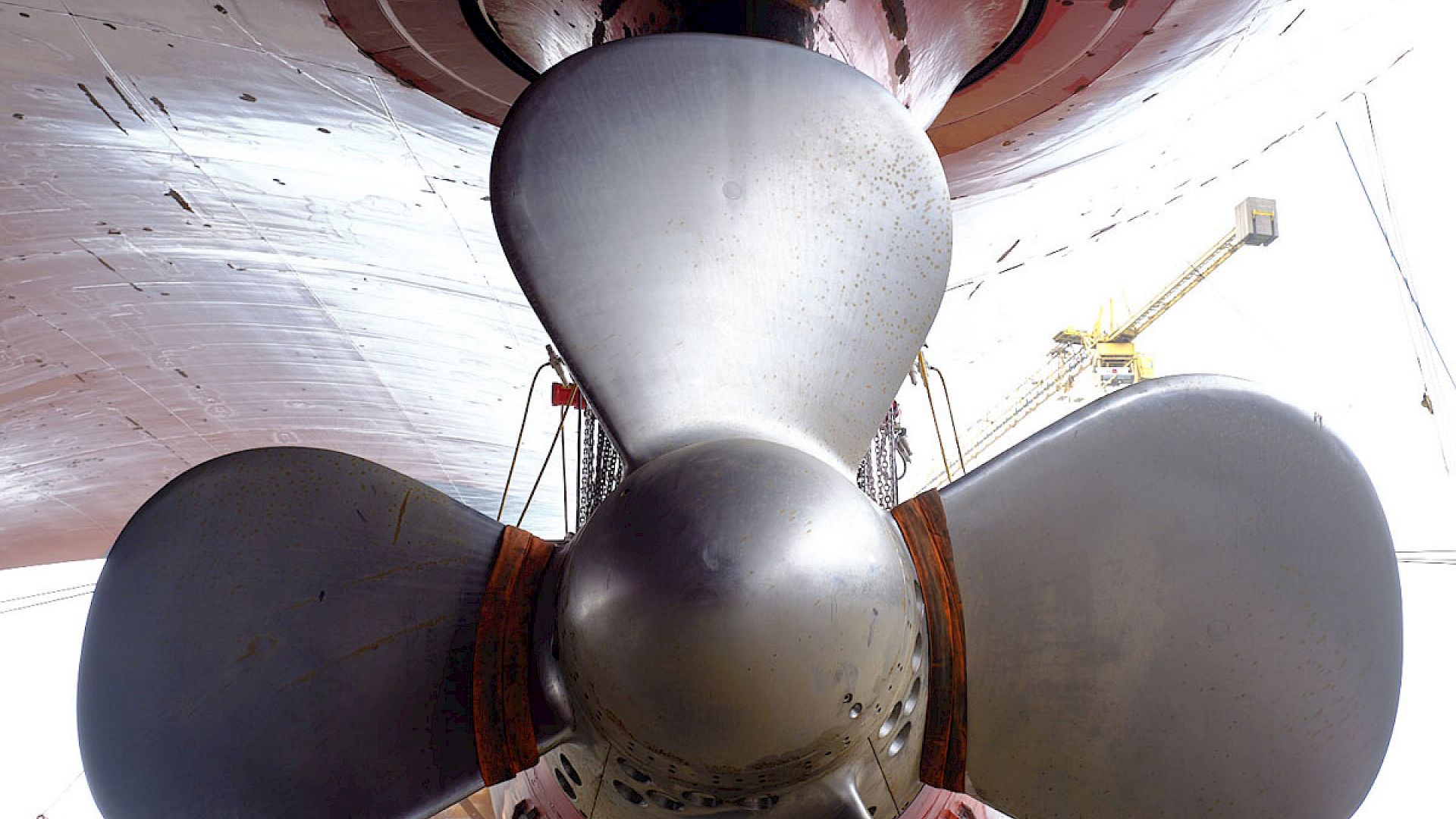This story requires a subscription
This includes a single user license.
Spark’s data lead, Qasim Afghan, told LNG Prime on Friday that Spark30S (Atlantic) freight rates fell further this week, dropping by $10,250 to $31,750 per day.

Meanwhile, Spark25S (Pacific) rates decreased marginally, falling by $1,250 to $38,750 per day.
Afghan said this marks the first time since April that the Pacific basin is priced at a premium to the Atlantic.
European prices climb
In Europe, the SparkNWE DES LNG rose compared to last week.
“The SparkNWE DES LNG front month price for August increased by $0.464, pricing in at $11.639/MMBtu,” Afghan said.
He said the basis to the TTF remains relatively steady at $0.40/MMBtu, still indicating reduced demand for LNG delivery slots in NW-Europe.
“The US front-month arb to NE-Asia (via the Cape of Good Hope) continues to point to Europe, pricing in at -$0.157/MMBtu. The US front-month arb to NE-Asia via Panama continues to point to Asia for a sixth week running, assessed at $0.111/MMBtu,” Afghan said.

Data by Gas Infrastructure Europe (GIE) shows that volumes in gas storages in the EU continued to rise and were 61.95 percent full on July 9.
Gas storages were 59.44 percent full on July 2, and 79.85 percent full on July 9, 2024.
JKM
In Asia, JKM, the price for LNG cargoes delivered to Northeast Asia in August 2025 settled at $13.125/MMBtu on Thursday.
Last week, JKM for August settled at 13.160/MMBtu on Thursday, July 3.
Front-month JKM dropped to 13.095/MMBtu on Monday. It rose to 13.115/MMBtu on Tuesday and remained the same on Wednesday.
State-run Japan Organization for Metals and Energy Security (Jogmec) said in a report earlier this week that JKM for last week “rose to mid-$12s/MMBtu on July 4 from low-$12s/MMBtu the previous weekend.”
“JKM rose moderately due to growing competition for cargoes with Europe, tightening supply caused by rising demand in Egypt and Argentina, and increasing demand in Japan amid rising temperatures, although buying appetite in Northeast Asia remained limited. In China, spot LNG continued to lack price competitiveness compared to pipeline gas, resulting in subdued demand,” Jogmec said.

